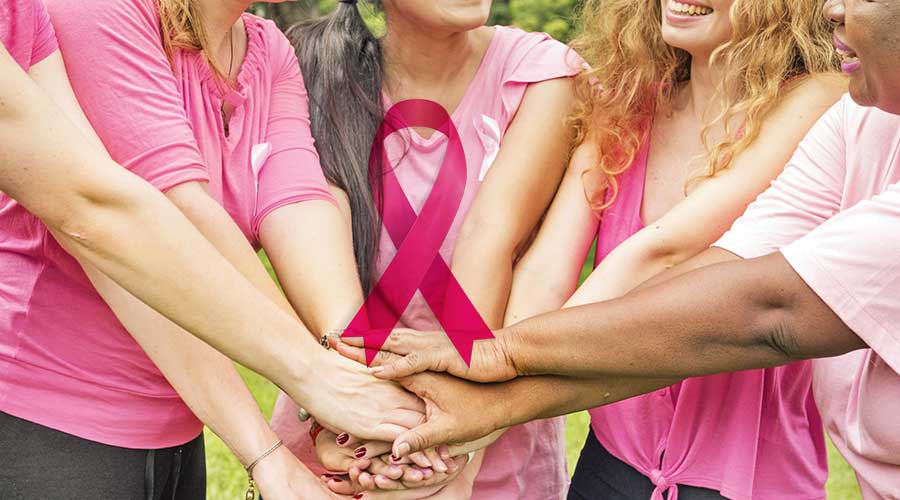Salt therapy – All you need to know
- 24 Feb - 01 Mar, 2024
October is National Breast Cancer Awareness Month. With this in mind, here we focus on some of the most common misunderstandings associated with breast cancer According to the World Health Organization (WHO)Trusted Source, in 2020, 685,000 people died from breast cancer, and 2.3 million received a diagnosis. It reported: “As of the end of 2020, there were 7.8 million women alive who were diagnosed with breast cancer in the past 5 years, making it the world’s most prevalent cancer.” Its prevalence might help explain why there is a wide range of myths attached to it. Here, we will tackle 15 of the most common misunderstandings.

Injury to the breast cannot cause breast cancer, however, it can cause changes in the breast that may mimic breast cancer on imaging. This process is called ‘fat necrosis, and it can look like an irregular mass with jagged edges on a mammogram, much like the appearance of a new breast cancer. The best way to distinguish cancer from fat necrosis is with a needle biopsy.
Although underwire bras do not increase breast cancer risk, doctors always recommend bras without a wire. The wire can irritate the skin under the breast, which can lead to skin breakdown. This breakdown may allow bacteria to enter the breast causing infection, [an] abscess, [or both].
As part of the in vitro fertilization (IVF) procedure, doctors often prescribe drugs that stimulate the ovaries to produce eggs. These drugs mimic the activity of estrogen. Because of this, some experts wondered whether they might encourage the growth of estrogen receptor-positive breast cancer. As the name suggests, these cancer cells have estrogen receptors on their membranes.
While there are no randomized controlled trials looking to answer this question, a recent meta-analysis of all observational studies over the past 30 years concluded that there is no increase in breast cancer risk for women who received ovarian stimulation drugs compared with the general population.
It is very common for [people] with a new breast cancer diagnosis to tell doctor how shocked they are considering that they have no family history. The vast majority of people who consult a doctor with a new breast cancer have no risk factors. In fact, the most significant risk factor for developing breast cancer is being a woman. In the United States, 1 in 8 women will develop breast cancer over their lifetime.
According to a research only about 5–10% trusted Source of breast cancers are caused by a genetic mutation that is passed between family members. This means that the majority of breast cancers are sporadic or have no hereditary cause. Because family history is only one factor in the risk of breast cancer, screening is important.
The message is that every woman starting at 40 years of age should have a yearly mammogram regardless of a family history of breast cancer. Those women with a family history of breast or ovarian cancer should be evaluated by a genetics counselor by the age of 30. This group of women may need to begin breast cancer screening prior to the age of 40.
With the ever-present stresses of modern life, it is no surprise that people are concerned about how stress might impact health. There is absolutely no evidence to support a link between stress and breast cancer. In fact, there is evidence to support that stress does not increase breast cancer risk.
That is not to say that stress cannot impact health at all, however. Part of being human is finding effective ways to deal with the stress we all will inevitably face. This can have profound health benefits both mentally and physically, but will do nothing to mitigate breast cancer risk.
This is a myth – not all lumps in the breast are cancer. However, any new lump should be “evaluated by a healthcare professional.
The reason this question comes up is because we know that breast cancer risk is directly related to estrogen exposure, and abortion interrupts the normal hormonal cycle of pregnancy.
There is no evidence to support that cell phones cause cancer. However, we do not have any long-term studies, so we may find this to be the case in the future. For now, why can’t you just put your phone in your pocket or bag?
COMMENTS